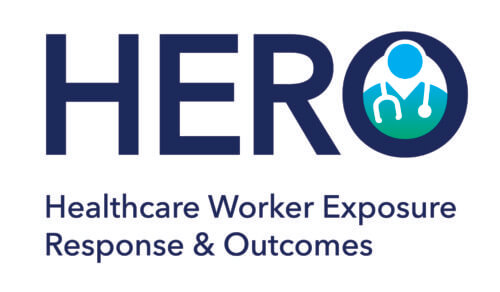Every year, the Health Datapalooza and National Health Policy Conference brings together leaders in data and policy to directly confront the biggest challenges and opportunities facing U.S. health care. As a pivotal resource generating fast, trustworthy answers to health questions raised by the COVID-19 pandemic, PCORnet®, the National Patient-Centered Clinical Research Network, was a hot topic at this year’s event. Researchers showcased how the Network was used across three distinct COVID-related projects during a presentation that demonstrated how PCORnet® empowered rapid COVID-19 insights.
“The concrete results that PCORnet Network Partners delivered through the pandemic are impressive, and this was a wonderful opportunity to share them broadly with an audience of policy leaders, big thinkers and problem solvers,” said Russell Rothman, moderator for the presentation and chair of the PCORnet Steering Committee. “The Network’s collaborative use of data, powerful infrastructure and commitment to patient engagement has made it an important resource for bringing meaningful insights to questions around everything from healthcare worker burnout to national trends, long-COVID, and more. I’m proud of what we’ve accomplished and look forward to using the Network for more good work in the future.”
PCORnet-enabled answers to COVID-19
With access to data from everyday encounters with more than 66 million people across the U.S., PCORnet has long been successfully supporting large-scale, multi-site research. However, interest in the Network surged during the pandemic, when its broad and diverse scope and research-ready infrastructure helped deliver rapid answers to inform public health. PCORnet leaders Russell Rothman, Emily O’Brien, Tom Carton and Suchitra Rao presented at the 2022 conference about results from three different PCORnet-enabled projects:
HERO Research Program: The HERO Research Program was rapidly launched in April 2020 to understand the challenges facing healthcare workers and recruit healthcare workers for COVID-19 research studies. It now includes over 55,000 people in every U.S. state who report on their perspectives and experiences via an online portal. Participants have reported in real-time their intentions to vaccinate, their feelings of moral injury and burnout, thoughts about returning to schools, and more. Through HERO, researchers conducted two important studies on COVID-19 prevention and vaccination.
Collaboration with the CDC: Researchers partnering with the U.S. Centers for Disease Control (CDC) are using PCORnet resources to shape the national understanding of COVID-19 by leveraging electronic health record (EHR) data that has been standardized to the PCORnet® Common Data Model. To date, researchers have used aggregated, de-identified data representing nearly half a million patients with a COVID-19 diagnosis and/or positive lab test to learn about patterns of infection, treatment effectiveness, vaccination, virus variants, healthcare utilization, and complications of infection and recovery.
RECOVER: PCORnet resources are furthering the goals of the NIH-funded Researching COVID to Enhance Recovery (RECOVER) initiative by developing large EHR databases to enhance our understanding of the epidemiology and risk of long-COVID. This PCORnet-enabled research program includes two teams focusing on children and adults respectively and working collaboratively to characterize risk factors for long-COVID.
“Each of these projects are distinct and really showcase the spectrum of PCORnet Network Partner strengths,” said Tom Carton of the Louisiana Public Health Institute, principal investigator for REACHnet, a PCORnet Network Partner, and an investigator with the CDC collaboration. All are enabled by PCORnet and centered around the needs of patients. This is only the beginning.”

 The Healthcare Worker Exposure Response & Outcomes (HERO) Registry launched today, marking the first major milestone in a
The Healthcare Worker Exposure Response & Outcomes (HERO) Registry launched today, marking the first major milestone in a